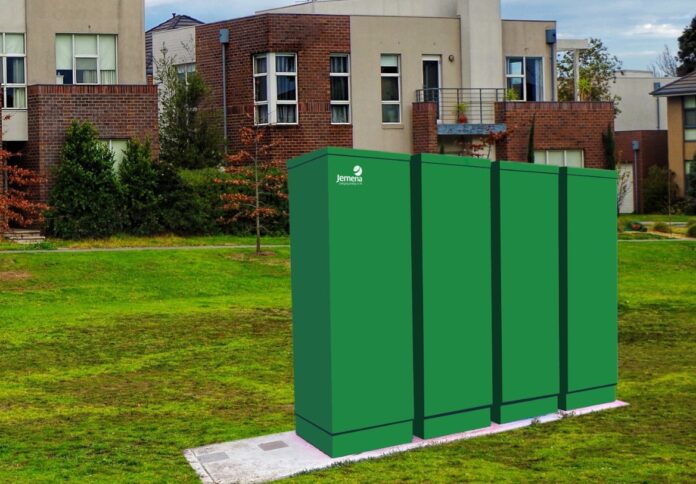
Jemena Electricity Networks has been awarded up to $2 million in funding for the installation of four new community batteries in Victoria through the Australian Government’s Community Batteries for Household Solar Program.
The community batteries, which will be generated from rooftop solar, will power hundreds of residents living in Alphington, Bellfield, Coburg, and Flemington, Jemena said in a news release.
In particular, the community batteries will store extra electricity generated by rooftop solar during the day and make it available to the larger community during peak nighttime hours.
Each battery will have around 360kWh of storage capacity, which is equivalent to the amount of electricity used by approximately 150 houses for two hours at night.
This means that all customers connected to the local network, not just those with rooftop solar, will have access to renewable energy.
The batteries will also aid in grid stabilisation by absorbing extra solar during the day and reducing demand on the system at peak hours late in the day.
According to Shaun Reardon, executive general manager of Jemena Networks, many customers have expressed a desire for access to clean, renewable energy.
“By installing these community batteries within the Jemena Electricity Network, we are making renewable energy a reality for many of our customers who don’t have rooftop solar, such as those who are renting,” Reardon explained.
The Jemena official said the company will now work with local councils and residents to confirm the specific locations of each battery and engage with residents throughout the project.
This will include written progress reports as well as in-person gatherings where citizens can ask questions and provide feedback.
Reardon added that the installation of the community batteries will expand on Jemena’s work to allow more individuals to export solar energy back into the grid over its electrical network.
He remarked, “The amount of solar energy that can be exported back into the grid within the Jemena Electricity Network has grown by 30 per cent from levels seen in 2020.”
“This was achieved through an optimisation program aimed at ensuring the network is equipped to host additional solar energy with no impact to the power supply customers rely on each day,” Reardon added.
As solar adoption grows in the coming years, he said Jemena will continue to invest in new technologies such as community batteries to ensure grid stability.
The installation of the batteries will begin in 2024, and Jemena expects the batteries to be operational by mid-2024.



















